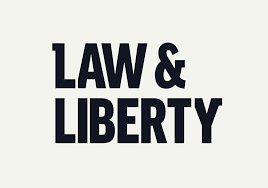Securing Academic Liberty
- sofiapbaker
- Apr 4, 2022
- 1 min read
Patrick Deneen, self-described as a post-liberal, one of the most brilliant bomb-throwers on the American intellectual scene today, has written an article with the provocative title, “Against Academic Freedom.” It takes issue with Roman Catholics who defend academic freedom, not excluding Robert George of Princeton, the most influential Catholic thinker in America and a founder of the Academic Freedom Alliance (of which I am a member).
Deneen opposes academic freedom because he sees it as a weak shield for protecting the intellectual liberty of the few remaining conservatives in secular universities. The ideal of academic freedom, Deneen believes, only pretends to be neutral among competing claims to truth. In fact, it conceals substantive commitments to progressive ideology. In Catholic universities like Notre Dame, where Deneen teaches, advocacy of academic freedom is tantamount, he claims, to opposing the religious mission of those universities’ founders. As he quite correctly points out, the ideal of academic freedom, when it took hold in American universities during the Progressive Era, was designed in part to undermine and ultimately replace the explicitly religious commitments held by almost all American universities of that era. (A brilliant account of this transformation is given in chapter 6 of Brad Gregory’s undervalued 2012 book, The Unintended Reformation.) Hence it should be no surprise that persons committed to preserving traditional beliefs and settled ways of life in Christian universities should now find themselves an embattled minority. That was the purpose all along…
